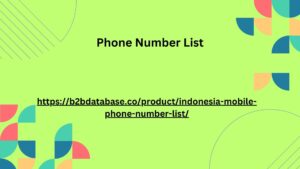How businesses can stay ahead of the curve in SMS marketing
SMS marketing has become a powerful tool for businesses to directly reach and engage their customers.
To stay ahead, it is essential to adopt innovative strategies and use the latest technologies.
Key strategies for effective SMS marketing
Personalized and targeted messaging:
Customer Segmentation: Segment your customer base based on demographics, preferences and behaviors and send highly relevant messages.
Dynamic content: Use automation to personalize messages using real-time data such as customer names, purchase history and location.
A/B testing: Experiment with different message variations to determine the most effective content and call to action.
Conversational SMS marketing:
Two-way communication: Allow customers to reply to messages and engage in conversations.
Chatbots: Use AI-powered chatbots to provide instant customer support and answer frequently asked questions.
Conversational marketing platforms: Integrate SMS with other channels such as messaging apps and social media for a seamless customer experience.
Rich messaging and multimedia:
Images and videos: Improve message engagement by including visual content.
GIFs and emoticons: Add a playful and casual touch to messages.
Location-based offers: Send targeted promotions based on a customer's location.
SMS automation and scheduling:
Workflow automation: Create automated workflows to trigger messages based on specific events, such as purchases, abandoned carts, or birthdays.
Scheduling: Schedule messages in advance to ensure timely delivery.
Integration with CRM systems: Sync SMS marketing data with your CRM to gain valuable insights and customize campaigns.
Compliance and Best Practices:
Opt-in and Opt-out: Get customers' express consent before sending SMS messages.
Message frequency: Avoid Indonesia Mobile Phone Number List bombarding customers with redundant messages.
Legal Compliance: Comply with local regulations and laws regarding SMS marketing.
Analysis and measurement:
Key Performance Indicators (KPIs): Track metrics such as open rates, click-through rates, conversion rates, and ROI.
A/B testing: Continuously experiment and analyze results to optimize campaigns.
Customer feedback: Get customer feedback through surveys and feedback mechanisms.

New trends in SMS marketing
SMS Marketing for E-Commerce: Use SMS to drive sales, abandoned cart recovery and post-purchase engagement.
SMS for Customer Support: Provide efficient and personalized support through SMS channels.
SMS for Loyalty Programs: Reward loyal customers with exclusive offers and personalized experiences.
SMS for Event Marketing: Promote events, send reminders and provide updates.
By adopting these strategies and following new trends, businesses can effectively use SMS marketing to build strong customer relationships, increase engagement, and achieve their marketing goals.